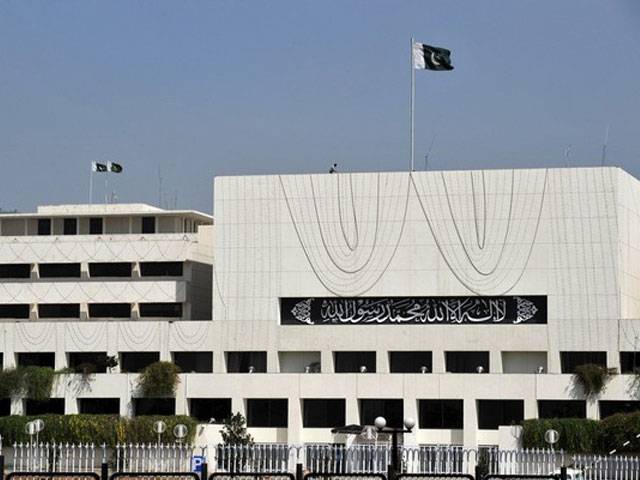ISLAMABAD - Only 20 per cent of members of the National Assembly and 18 per cent of the provincial assemblies are women and merely three per cent of directly elected seats are held by women in the national and the provincial assemblies.
Moreover, there are reportedly eleven million fewer women registered as voters than men in the electoral rolls.
Aurat Foundation and Democracy Reporting International (DRI) identified areas where Pakistan is not compliant with the requirements for political participation of women protected under the Convention on Elimination of All Forms of Discrimination Again Women (CEDAW), which was ratified by Pakistan in 1996.
In the jointly produced paper ‘Women’s Participation in the Upcoming 2013 Elections: Pakistan: Pakistan’s International Law Commitments under CEDAW’, the Aurat Foundation and DRI presented recommendations aimed at improving fulfillment of women’s right to participate in political and public life as enshrined under CEDAW.
It was shared among total strength of 2288 employees in Election Commission of Pakistan (ECP) secretariat, there are only 21 women whereas there is no participation of women at the decision making level. Executive Director Rozan Maria Rashid said significant problems in Pakistan persist with regard to participation of women as voters and as well as candidates and the joint Aurat-DRI briefing paper came at an opportune time when elections are around the corner and many reforms relating to women’s participation in elections remain unaddressed.
Merely three percent of directly elected seats are held by women in the National and the provincial assemblies. Moreover, there are reportedly eleven million fewer women registered as voters than men in the electoral rolls.
The groups called for different branches of the state to provide gender-disaggregated data, meaningfully consult with women’s groups, and undertake additional special measures to promote women’s political participation in Pakistan.
It was recommend that the ECP and the National Database and Registration Authority (NADRA) provide publicly accessible gender-disaggregated data broken down by administrative units in order to enable effective scrutiny of women’s political participation; and that political parties be required to publicly provide regular and standardised information about the number and proportion in women in their executive and leadership positions.
Consultations with women’s groups could also be carried out to discuss how legislation and administrative regulations can be improved to facilitate greater participation of women in the electoral process.
Farkhanda Aurangzeb, from the Aurat Foundation, stressed the need for political parties to review and strengthen their commitments towards equal participation of women.
“Parties could promote and ensure greater inclusion of women in decision-making and leadership positions within parties”. She added that political parties could be required to nominate a minimum proportion of women candidates to contest on winnable general seats.
Madiha Farhan from DRI stated, “Equal electoral participation of women is essential to the legitimacy of democratic processes and structures.
It is essential that the relevant state organs take all necessary measures to eliminate discrimination against women as committed to under treaties such as the CEDAW and the International Covenant on Civil and Political Rights (ICCPR).”
Speakers at the conference proposed that additional resources, greater security, and special media coverage and policies for women candidates is needed in order to provide more equitable opportunities to women contesting on general seats.
They pointed out that one of the recommendations in the paper is greater access to remedy in election disputes for women through broadening of the category of those permitted to file election petitions to include voters, civil society organisations and parties.
Friday, April 19, 2024
Women still under-representation in Parliament

Pak economy improving, funds will be provided on request: IMF
9:57 PM | April 19, 2024
Minister advocates for IT growth with public-private collaboration
9:57 PM | April 19, 2024
Judges' letter: IHC seeks suggestions from all judges
9:55 PM | April 19, 2024
Formula 1 returns to China for Round 5
9:05 PM | April 19, 2024
Germany head coach Julian Nagelsmann extends contract till 2026 World Cup
9:00 PM | April 19, 2024
A Tense Neighbourhood
April 19, 2024
Dubai Underwater
April 19, 2024
X Debate Continues
April 19, 2024
Hepatitis Challenge
April 18, 2024
IMF Predictions
April 18, 2024
Kite tragedy
April 19, 2024
Discipline dilemma
April 19, 2024
Urgent plea
April 19, 2024
Justice denied
April 18, 2024
AI dilemmas unveiled
April 18, 2024
ePaper - Nawaiwaqt
Advertisement
Nawaiwaqt Group | Copyright © 2024





